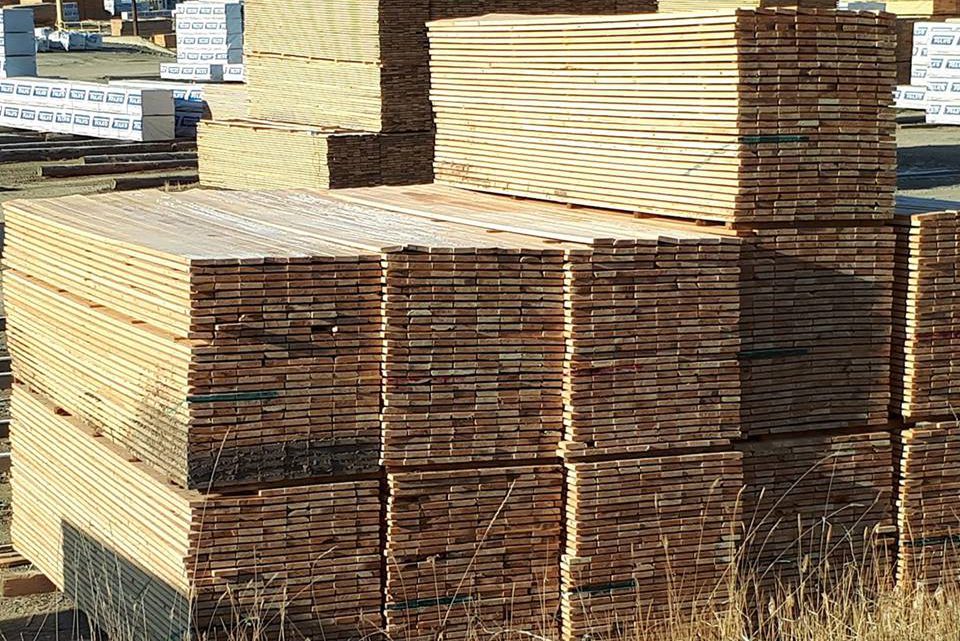Reaction continues to pour in following Canfor’s decision to close its sawmills in Vanderhoof and Fort St John, leaving nearly 500 people out of work – with over half of them located in the Nechako Valley.
 Conservative Party of BC Leader and Nechako Lakes MLA John Rustad told Vista Radio the fallout from this will be far and wide.
Conservative Party of BC Leader and Nechako Lakes MLA John Rustad told Vista Radio the fallout from this will be far and wide.
“The impact is huge. I mean, it permeates through all components of the whole region whether it’s the Houston mill or the one in Vanderhoof and Fort St. John not to mention this will impact chip supplies, pellets and everything that goes on in our forestry sector.”
“So many people are dependent on having work within the forest sector. Whether it affects the logging side or the milling side and even sports teams and people supporting the coaching as well as providing sponsorship. Everything is impacted by this. Our forest sector is critical.”
Vanderhoof Mayor Kevin Moutray added it will be a tough couple of years ahead in Vanderhoof as they try and find new ways to be economically viable.
“Diversification has been top of mind for councillors. As you know, we had the mountain pine beetle pandemic and a lot of that lumber was liquidated. Knowing there was going to be some repercussions from that we have been trying to plan ahead.”
Moutray echoes Rustad’s sentiments that the jobs cuts will be a lot more wide-ranging than just those employed by the mill.
“It’s not only those 260 Canfor employees. You do have contractors bringing in the timber from the forest – the numbers are quite a bit higher than that in terms of the amount of people directly impacted.”
When asked if it will take a change in government to improve the current state of BC’s lumber industry, Moutray believes it’s far bigger than just a Victoria problem.
“Previous governments haven’t been able to figure this out either. The layer of forest policy has been one factor but there are many factors that have led us to here.”
The closures will remove 670 million board feet of annual production capacity from Canfor’s BC operations.
Linda Coady, President & CEO of the BC Council of Forest Industries (COFI) made the following statement in response to the announcement of additional mill closures in BC.
“Any time a mill closes, those hardest hit are the workers, their families and the community, and the immediate concern is to ensure they receive the support they need. Yesterday’s closures underscore the urgent challenges facing British Columbia’s forest sector and the need for immediate government action to address the root causes threatening the future of forestry in BC. Forest management, harvesting, and manufacturing supports tens of thousands of jobs across BC, contributes significantly to the provincial economy, and plays a critical role in advancing economic reconciliation with First Nations. Without decisive intervention, the viability of this foundational industry is at risk.
Recent significant increases in US tariffs on Canadian softwood lumber and lack of predictable access to economic and sustainable fibre are reducing the ability of forestry companies to maintain their operations in BC. Exacerbating this situation are other factors such as weak market conditions, high operating costs, wildfires, permitting delays, and a complex regulatory environment.
While global market challenges persist, there are steps that can be taken in BC by the provincial government to mitigate against those external pressures and create the conditions that foster a more resilient forest industry. COFI calls on British Columbia to work with the federal government to put in place a durable solution to the long-standing Canada-US softwood lumber trade dispute. Urgent action is required to defend BC producers, workers, and communities from the disruptive impacts of these unfair and unwarranted tariffs.”
COFI is also calling on all parties in the forthcoming BC provincial election to have a clear and focused strategy that strengthens the forest sector’s competitiveness by addressing the following three priorities:
Stabilize and Increase Economic Fibre Supply: The current allowable Annual Cut (AAC) is approximately 60 million cubic metres. However, in 2023, the actual harvest fell to 35 million cubic metres and could be as low as 30 million cubic metres this year. Setting a target for a consistently available level of harvest is essential to sustain a viable forest sector, keep primary and value-added mills operating, and preserve jobs and community stability.
Advance New Agreements with First Nations: Co-development of a more equitable and transparent forest revenue framework will ensure meaningful benefits are shared with First Nations. New approaches to First Nations stewardship, forest tenure, treaty, and equity and investment will support economic reconciliation and build stronger partnerships with Indigenous communities.
Accelerate Innovative Forest Management: Embracing new approaches to forest management and expediting land use planning can support wildfire mitigation, biodiversity conservation, and climate adaptation, while providing a reliable supply of fibre to the industry.
Something going on in the Prince George area you think people should know about?
Send us a news tip by emailing [email protected].






